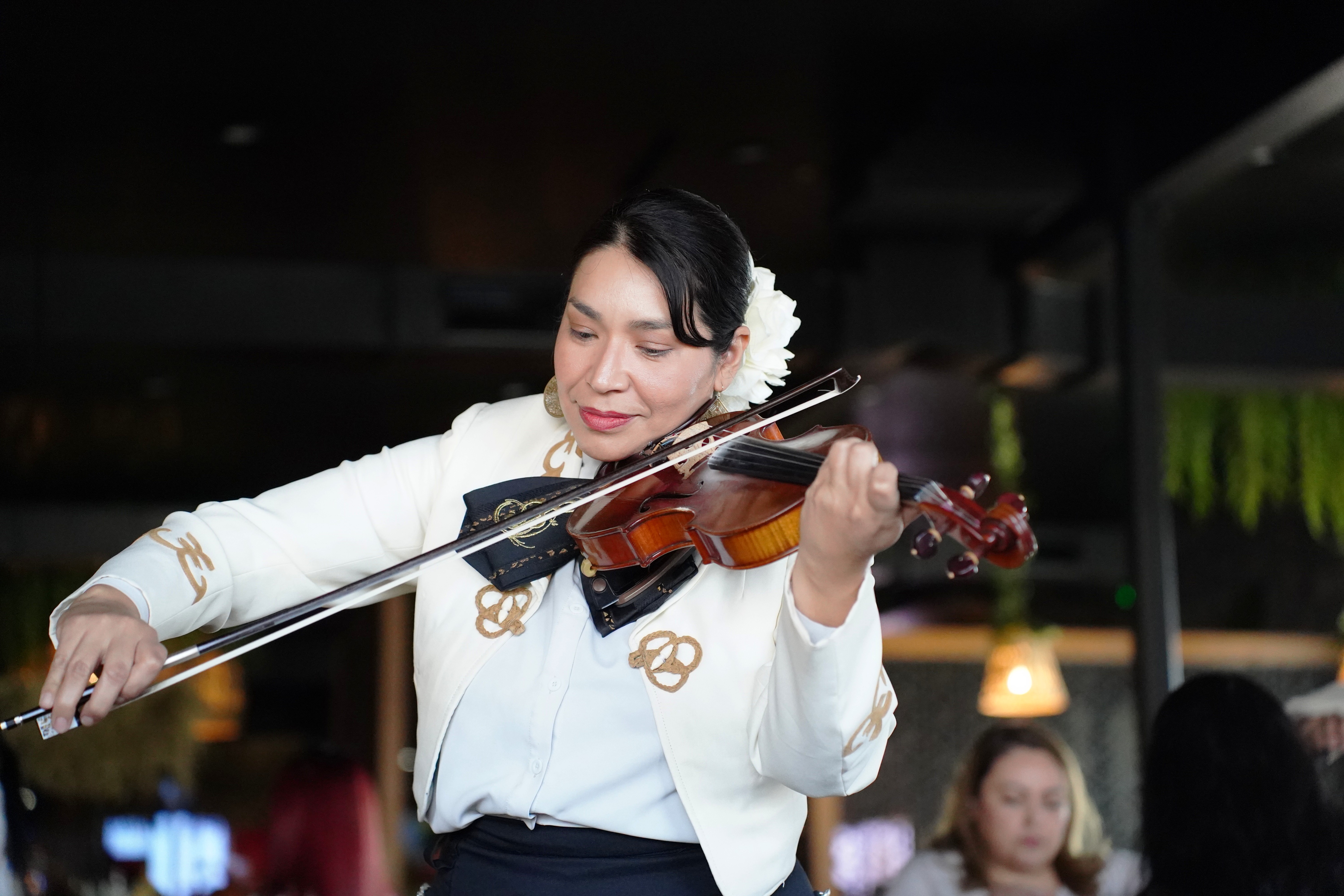Marilyn Rodriguez on Gender and Musical Authorship
Redefining Legacy Through Music, Memory, and Voice
Marilyn Rodriguez’s story begins in Bakersfield, California, where mariachi was not just music but a family inheritance. A third-generation mariachi, she was handed a violin by her father at age ten and told—alongside her sister—that they were going to learn to play. That moment launched her into a musical tradition that would shape her identity, even as she sometimes struggled with the visibility that came with it.
In school, classmates called her “mariachi girl” or “Selena,” drawing attention to her long hair and her role as a performer. As a young girl, she often wished to blend in. Looking back now, she sees that discomfort as part of a larger gendered experience—of being one of the few girls expected to carry on a tradition often dominated by men and presented in public spaces.
Marilyn eventually embraced her role in mariachi, performing with groups like Mariachi Juvenil Alma Mexicana and Mariachi San Marcos. She watched the tradition shift from something passed down informally within families to something now taught in schools—an evolution that, she believes, has created more access, especially for girls. Still, she notes the need for educators who understand both the musical and cultural dimensions of mariachi, to ensure students connect with its full meaning.
Today, Marilyn balances her musical life with a full-time career in the behavioral health field, where she supports mental health and wellness in her community. Music remains a meaningful part of her life as a form of expression and continuity that connects her to family, culture, and identity. She performs when she can, and continues to write and record with close collaborators, including her cousin Carlos Rodríguez.
In regional Mexican and Latin musical traditions, the role of composer tends to be assumed to be male. Marilyn encountered this bias directly—when she shared that she had written a song, the response was often disbelief. The assumption was that a man must have done it. Her commission by the Sounds of California—San Joaquín Valley project to compose “Fields of the Valley” in 2025 marked a rupture in that narrative. It offered more than visibility—it offered authorship. To be recognized not simply as a voice, but as the one shaping the story, challenged a long-standing erasure of women’s creative authority within the genre.
Her debut of the piece, performed with her cousin Carlos Rodríguez, was not only a personal milestone—it was a public gesture toward equity within tradition. Being recognized as a songwriter in a commissioned setting marked a meaningful shift in how women’s authorship is acknowledged within regional music traditions. In a landscape where women have long contributed as performers but rarely as composers, Marilyn’s voice signals a broadening of creative ownership. Her work weaves together mariachi roots, rock influences, and personal narrative into a sound that reflects both inheritance and agency.
Marilyn Rodriguez’s journey reveals how gender operates not only in access and representation, but in the deeper structures of legitimacy, authorship, and memory. She continues to envision a future in which young women are not merely placed into music as a duty, but welcomed into it as cultural thinkers, creators, and leaders. In her story, we see how tradition is not static but constantly negotiated—reshaped not by rejection, but by redefinition.





